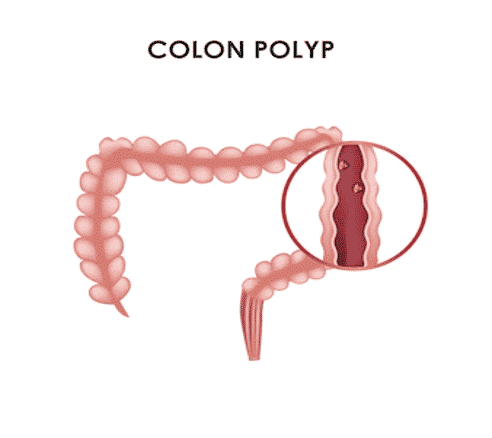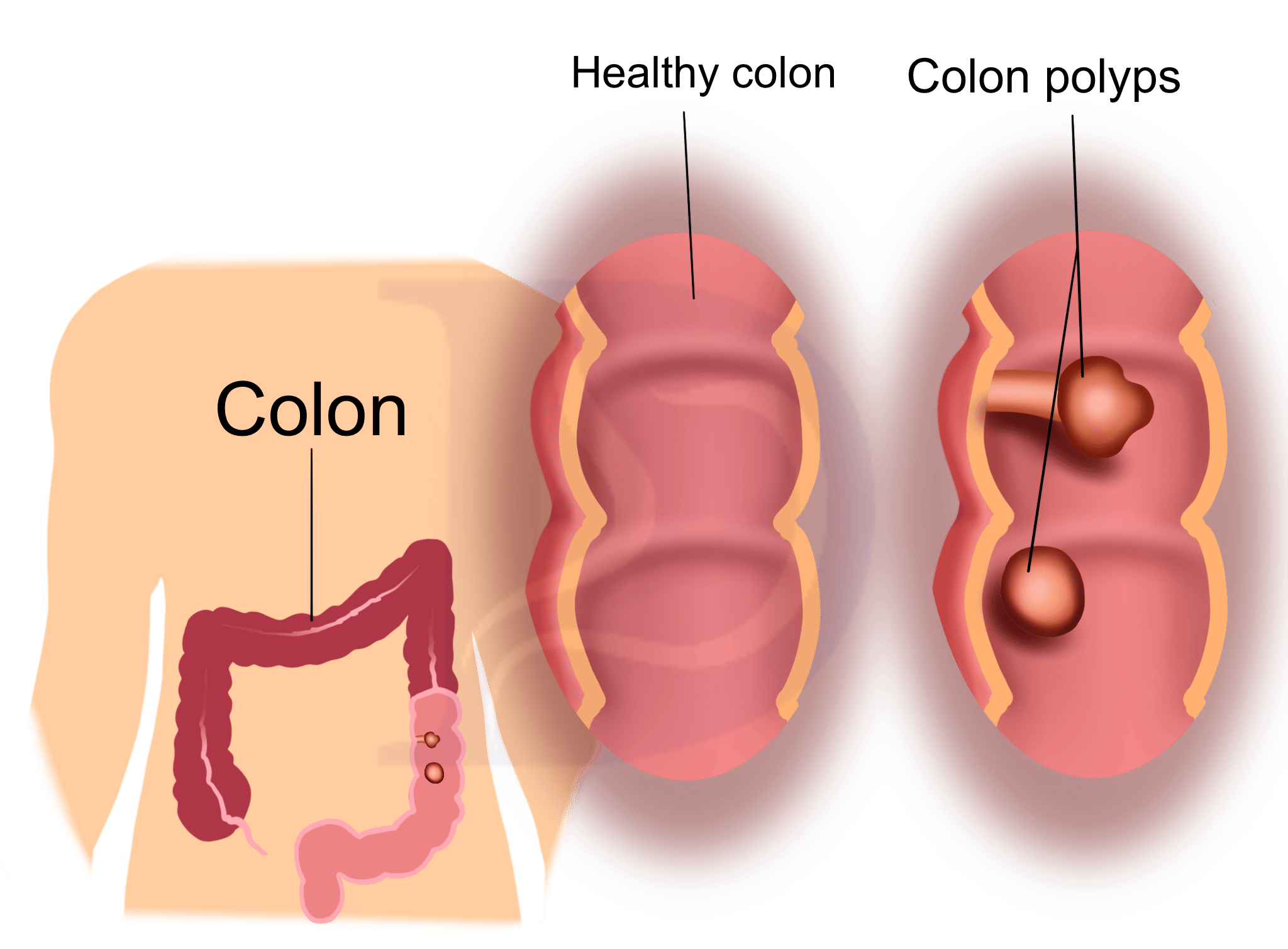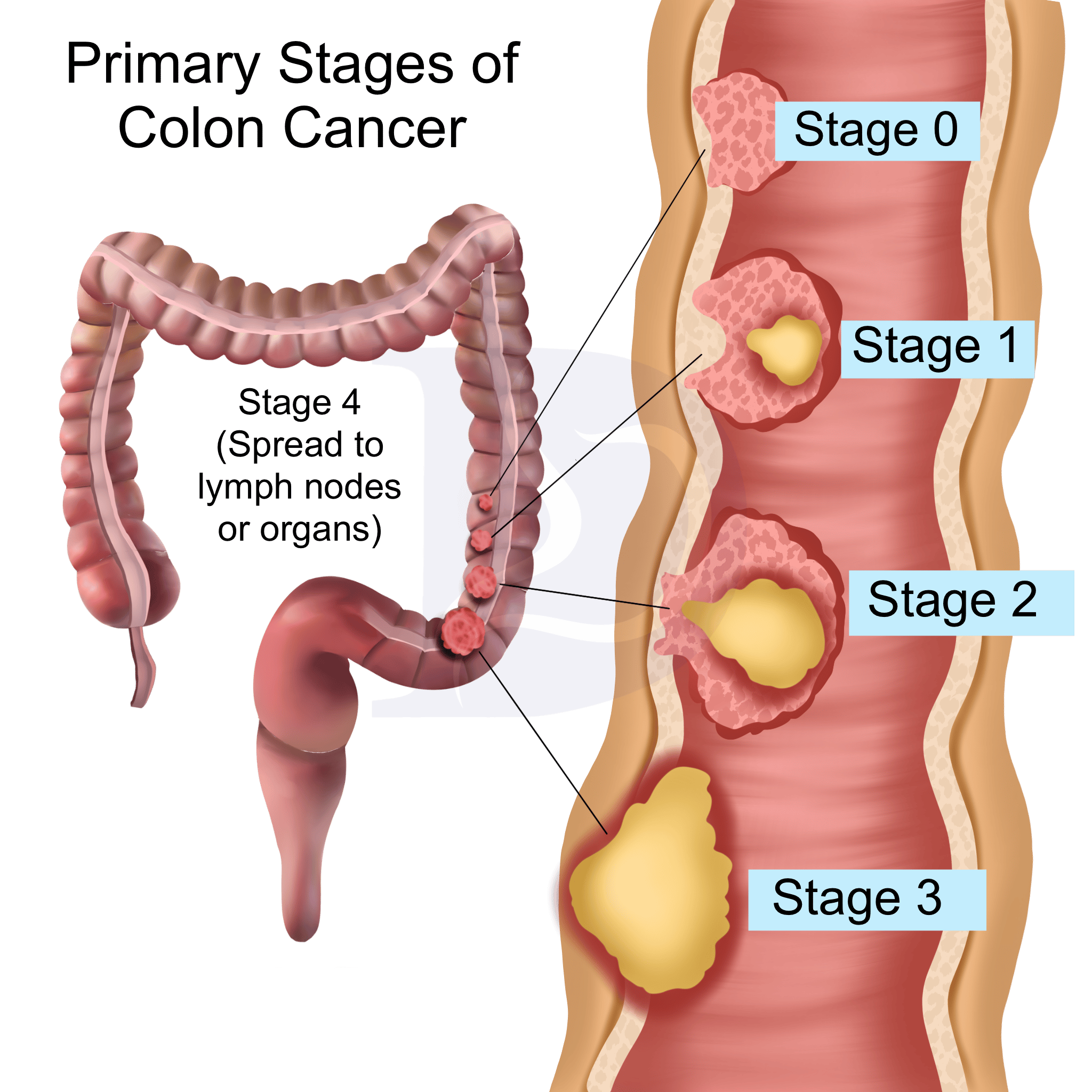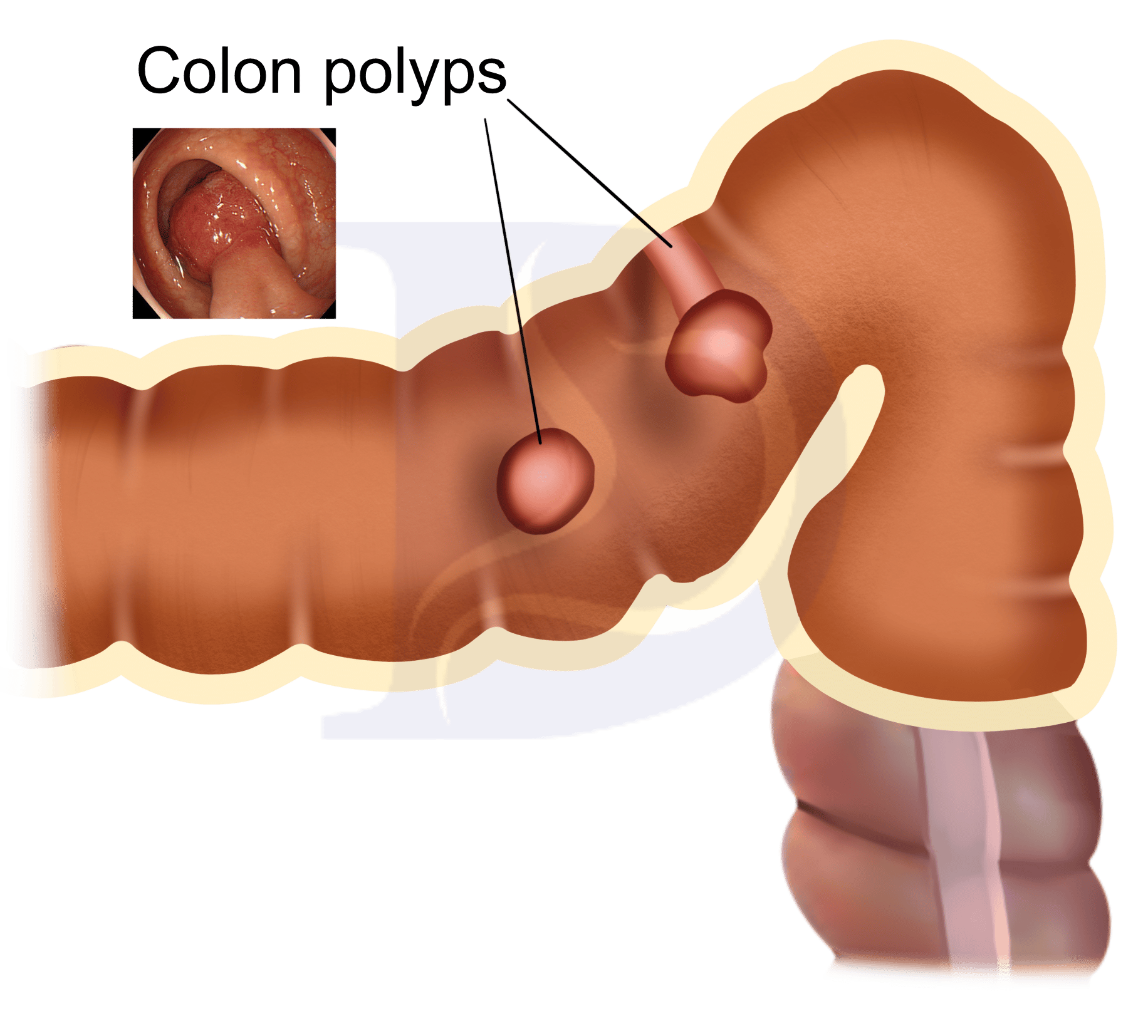A colon polyp is a small clump of cells that form on the colon. Most colon polyps are harmless, but some may lead to cancerous growths. Even though colon cancer is one of the most curable forms of cancer, the number of colon cancer patients is increasing daily in the USA. We now know that patients with colon polyps are more prone to developing colon cancer.

This disease starts in the cell lining of the colon. Apart from specific other reasons, it has been suggested that particular genes lead to the occurrence of illness. Such genes are hereditary and can be passed from generation to generation.
What is a Colon Polyp/Cancer?

A polyp is a cellular growth that can present in different organs of the body. Colon polyps are common and typically easily treatable, yet may lead to cancer if undetected. Colon cancer can also occur in other conditions, including ulcerative colitis or chronic inflammation of the colon. If colon polyps are larger, there is a greater possibility that they can contain cancerous cells.
Initially, colon polyps are benign; however, they may become malignant if allowed to persist for longer periods of time.

Polyp Shapes
Polyps are commonly formed in two shapes. Their size may vary from a small pea to a plum. Polyps can be:
Pedunculated Polyps: These are mushroom-like polyps that bulge out at the end of the stalk. These adenomatous polyps grow with a stem and mushroom at the tip.
Sessile Polyps: These are flat polyps that lack a stalk and lie directly on the colon.

Why and How do Colon Polyp forms?
There are two leading causes of colon polyps: genes and the environment. Some people have a genetic defect in those specific genes that makes them prone to colon polyps, while others have increased risk due to environmental factors such a poor diet, alcohol use and smoking.
Hereditary Causes
A gene controls the resistance and susceptibility of a person to colon polyps and cancer. Mutations in a wide variety of genes can lead to increased development of polyps and hereditary colon cancer. These genes can be passed on to each successive generation.
Dietary Causes
Apart from genetic causes, dietary choices also effect the chances of getting colon polyps and cancer.
Calcium: Controls the growth of colon cells. Studies show that taking 1000-1500 mg of calcium per day can help to prevent colon cancer.
Saturated Fats: Foods high in saturated fat can increase the risk of colon cancer. Certain foods, including processed foods, fast food, BBQ, and red meat, can increase the risk of colon cancer, and are typically bad for overall colon health.
Fiber: Studies have shown that taking ample fiber in the diet prevents colon cancer and diverticular disease. Adequate daily consumption of fresh fruits and vegetables is highly recommended.
Other Causes
- Lack of exercise
- Smoking
- Alcohol consumption
- Obesity
- Eating excessive processed food Symptoms
- Unexplained weight loss
- Bleeding from rectum
- Altered bowel habits
- Abdominal pain
Categories of Polyps
There are three different categories of polyp depending upon the origin and type of polyps:
Ordinary Polyps: These develop mainly after the age of 40 and occasionally lead to cancer if left untreated. Most of these are hereditary and take 10 years or more to grow.
Hereditary Familial Polyposis: This is a congenital condition in which the colon is studded with hundreds and often thousands of polyps. These develop at an early age, and the only remedy involves surgical removal of the affected part of the colon.
Lynch Syndrome: This disease is more common in close relatives such as siblings, cousins, etc4. These polyps also occur at an early age, from 20 to 40. Therefore, there should be proper surveillance in the entire family if such a case is reported.
Diagnosis and Detection
Timely detection of colon polyps is essential for a better disease prognosis. Colon polyps can be detected as below:
- Medical history and symptoms.
- Stool examination
- Sigmoidoscopy- visual examination of the colon via a lighted, flexible endoscope.
- Colonoscopy- Detailed examination of the entire colon under sedation
- Barium Enema X-ray technique
Prevention
A healthy diet, high in soluble fiber, fresh fruits, vegetables, and lean proteins is the best step one can take towards preventing colon polyps. Aspirin can be effective in the prevention of colon polyps for certain patients as well. In addition, avoiding smoking and drinking, along with regular exercise, protects against colon polyps and cancer6.
References
- Song M, Emilsson L, Bozorg SR, et al. Risk of colorectal cancer incidence and mortality after polypectomy: a Swedish record-linkage study. lancet Gastroenterol Hepatol. 2020;5(6):537-547. doi:10.1016/S2468-1253(20)30009-1
- Burke JR, Brown P, Quyn A, Lambie H, Tolan D, Sagar P. Tumour growth rate of carcinoma of the colon and rectum: retrospective cohort study. BJS open. 2020;4(6):1200-1207. doi:10.1002/bjs5.50355
- Meseeha M, Attia M. Colon Polyps. StatPearls. Published online August 15, 2021. Accessed March 26, 2022. https://www.ncbi.nlm.nih.gov/books/NBK430761/
- Song M, Emilsson L, Roelstraete B, Ludvigsson JF. Risk of colorectal cancer in first degree relatives of patients with colorectal polyps: a nationwide case-control study in Sweden. BMJ. 2021;373. doi:10.1136/BMJ.N877
- Bond JH. Colon polyps and cancer. Endoscopy. 2005;37(3):208-212. doi:10.1055/S-2004- 826236
- Sanchez NF, Stierman B, Saab S, Mahajan D, Yeung H, Francois F. Physical activity reduces the risk for colon polyps in a multiethnic colorectal cancer screening population. BMC Res Notes. 2012;5. doi:10.1186/1756-0500-5-312

